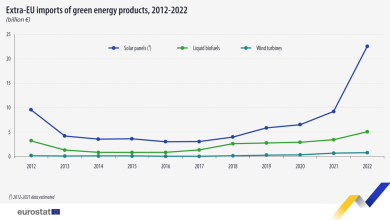GEO 119/2022, Support for All Economic Operators

By Aurelian Gogulescu, President of CCI Prahova
Of Romania’s 41 counties, Prahova stands out for its economic achievements, with a high-performing industry concentrated around competitive sectors – oil & gas, construction, automotive, heavy industry etc. – supported by the most extensive network of industrial parks in the country, but also as a top tourist destination. Prahova is currently ranked third in terms of attracting foreign investment, fourth in terms of GDP and in the top 10 counties in terms of trade.
As demonstrated not only by theory but also by economic practice, the backbone of this intense activity is the entrepreneurial environment, with all its components – from small to large and very large enterprises – which ensures the verticality and sustainability of the county’s economy and is therefore a fundamental factor of a stable and healthy society.
From a numerical point of view, out of the more than 45,000 economic entities registered in Prahova County at the end of December 2021, almost 2,000 are SMEs, large and very large companies. Percentagewise, SMEs account for 99.74% of this number, with only 69 firms falling into the category of large and very large companies, or 0.26%. In terms of turnover, however, these 69 large and very large companies account for almost 65% of the total activity of companies in Prahova County and employ around 48,000 people, i.e., 34% of the total number of employees in Prahova.
In this context, payments to the public budget (be it taxes, salaries, VAT etc.) are proportional to turnover and number of employees, the 69 large companies being equally large contributors to the state budget. Moreover, their financial strength ensures their status as major investors in research, new technologies and social responsibility actions.
Although small, the impact of their activity is deeply felt not only at the level of the county economy, but also at the social level; implicitly, any serious problem they may encounter will be reflected not only in their own activity, but also in the well-being of the community of Prahova.
We have tried to briefly outline this picture to demonstrate the strong interconnections between the components of the business environment – entities of all sizes – and the fact that they are equally important for the well-being of the local economy.
In view of these considerations, the Prahova Chamber of Commerce and Industry, in its capacity as supporter and representative of the local business environment in its relations with the local and central public authorities, joins other Chambers of Commerce in the country (Sibiu, Arges, Calarasi, Dambovita, Giurgiu, Teleorman) in drawing attention to the very serious consequences that the current provisions of GEO 119/2022 will have if the government does not extend the granting of energy price subsidies to large and very large companies.
The profound impact of the context of the last two or three years – in which the Covid pandemic, the geopolitical instability in Eastern Europe and the exacerbation of the energy crisis overlapped – will be felt for a long time to come, and we can even say that it will affect an entire generation, if the government does not support all the actors involved in economic and commercial activity equally.
We consider it imperative to include, in the above-mentioned normative act, all economic operators without discrimination according to size, but also the Chambers of Commerce and Industry, entities of public utility, whose contribution to support the entrepreneurial environment is concrete and unequivocal.
We call on all political actors, led by the Romanian Government, to identify solutions to help consumers – household and non-household – to get through the winter of 2022-2023. We draw attention (again) to the fact that the lack of protection by the Romanian state will ultimately result in an unprecedented increase in all prices, which will be borne by end-consumers – Romanian citizens – whose interests they represent.
It is now more important than ever to feel a decisive, united, and inclusive direction of action from the government, which will gain the confidence of the two essential factors – civil society and the business environment.






